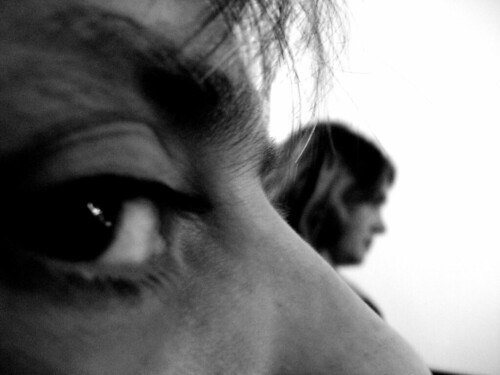
 A new Danish study suggests that physical activity reduces the risk of becoming near-sighted.The Danish doctor Nina Jacobsen, as part of her Ph.d, researched a group of students from Copenhagen Uni over two years and the ones that got more exercise will retain their good vision.The students who skip excerise and bury themselves in books have a greater chance of requiring eyeglasses later in life. There is already science that proves that there is a connection between intense reading and near-sightedness but now there may be an easy way to prevent it.
A new Danish study suggests that physical activity reduces the risk of becoming near-sighted.The Danish doctor Nina Jacobsen, as part of her Ph.d, researched a group of students from Copenhagen Uni over two years and the ones that got more exercise will retain their good vision.The students who skip excerise and bury themselves in books have a greater chance of requiring eyeglasses later in life. There is already science that proves that there is a connection between intense reading and near-sightedness but now there may be an easy way to prevent it.
"My research shows that one hour of physical activity each day can counter the negative effect of three hours of reading. If you multiply the results it suggests that two hours of daily excercise eliminates the strain on the eyes", said Nina Jacobsen to MetroXpress.
Fresh AirDon't run down to the gym right away, though. Research from Australia shows that fresh air has a positive effect on the eyes."The Danish students were good at cycling to and from school and that has had a positive effect on their vision", said Nina Jacobsen.
A MysteryThe biological explanation for WHY excercise is good for the eyes isn't clear and is only shown statistically. What happens to the eye; whether it is the quick pulse or that you focus on something else or the sunlight, is unknown.The scorecard between cyclists and motorists gets more and more uneven in favour of the cyclists each day.Sykling is Good!The fearmongerers here in Denmark should look north to the positive message the head of the Norwegian Cyclists' Federation writes on his blog.
"The following 'news story' is much more relevant! [Ed.: than negative focus on safety]... 'Last week 10 cyclists saved their lives by cycling to work! Together with thousands of other cyclists, they arrived awake and fresh at their jobs and started the day in good form and good spirits!'"
He goes on: "In Denmark about 50 cyclists are killed each year. A higher number than here in Norway. But in Denmark they have also calculated that over 600 lives a year are saved because of the high number of cyclists and the health benefits involved."
THAT is the way to promote cycling. The relevant parties in Denmark have completely dropped the ball.This study [.pdf] from the Norwegian Center for Transport Research [TØI] also states:
"There is evidence of increased accident risk per cycling-km for cyclists wearing a helmet. In Australia and New Zealand the increase is estimated to be around 14%. The introduction of a bicycle helmet law in these countries has additionally lead to a reduction of cycling-kilometres of 22%. This effect is likely to be larger for adolescents than for adults, and smallest for children."
Oh, those lovely Norwegians. So clever and wise.




